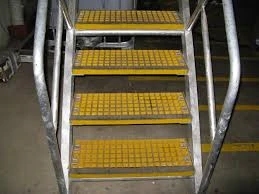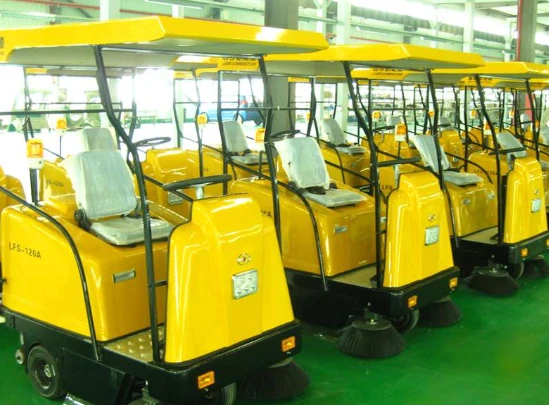
-
 Afrikaans
Afrikaans -
 Albanian
Albanian -
 Amharic
Amharic -
 Arabic
Arabic -
 Armenian
Armenian -
 Azerbaijani
Azerbaijani -
 Basque
Basque -
 Belarusian
Belarusian -
 Bengali
Bengali -
 Bosnian
Bosnian -
 Bulgarian
Bulgarian -
 Catalan
Catalan -
 Cebuano
Cebuano -
 China
China -
 China (Taiwan)
China (Taiwan) -
 Corsican
Corsican -
 Croatian
Croatian -
 Czech
Czech -
 Danish
Danish -
 Dutch
Dutch -
 English
English -
 Esperanto
Esperanto -
 Estonian
Estonian -
 Finnish
Finnish -
 French
French -
 Frisian
Frisian -
 Galician
Galician -
 Georgian
Georgian -
 German
German -
 Greek
Greek -
 Gujarati
Gujarati -
 Haitian Creole
Haitian Creole -
 hausa
hausa -
 hawaiian
hawaiian -
 Hebrew
Hebrew -
 Hindi
Hindi -
 Miao
Miao -
 Hungarian
Hungarian -
 Icelandic
Icelandic -
 igbo
igbo -
 Indonesian
Indonesian -
 irish
irish -
 Italian
Italian -
 Japanese
Japanese -
 Javanese
Javanese -
 Kannada
Kannada -
 kazakh
kazakh -
 Khmer
Khmer -
 Rwandese
Rwandese -
 Korean
Korean -
 Kurdish
Kurdish -
 Kyrgyz
Kyrgyz -
 Lao
Lao -
 Latin
Latin -
 Latvian
Latvian -
 Lithuanian
Lithuanian -
 Luxembourgish
Luxembourgish -
 Macedonian
Macedonian -
 Malgashi
Malgashi -
 Malay
Malay -
 Malayalam
Malayalam -
 Maltese
Maltese -
 Maori
Maori -
 Marathi
Marathi -
 Mongolian
Mongolian -
 Myanmar
Myanmar -
 Nepali
Nepali -
 Norwegian
Norwegian -
 Norwegian
Norwegian -
 Occitan
Occitan -
 Pashto
Pashto -
 Persian
Persian -
 Polish
Polish -
 Portuguese
Portuguese -
 Punjabi
Punjabi -
 Romanian
Romanian -
 Russian
Russian -
 Samoan
Samoan -
 Scottish Gaelic
Scottish Gaelic -
 Serbian
Serbian -
 Sesotho
Sesotho -
 Shona
Shona -
 Sindhi
Sindhi -
 Sinhala
Sinhala -
 Slovak
Slovak -
 Slovenian
Slovenian -
 Somali
Somali -
 Spanish
Spanish -
 Sundanese
Sundanese -
 Swahili
Swahili -
 Swedish
Swedish -
 Tagalog
Tagalog -
 Tajik
Tajik -
 Tamil
Tamil -
 Tatar
Tatar -
 Telugu
Telugu -
 Thai
Thai -
 Turkish
Turkish -
 Turkmen
Turkmen -
 Ukrainian
Ukrainian -
 Urdu
Urdu -
 Uighur
Uighur -
 Uzbek
Uzbek -
 Vietnamese
Vietnamese -
 Welsh
Welsh -
 Bantu
Bantu -
 Yiddish
Yiddish -
 Yoruba
Yoruba -
 Zulu
Zulu
Jan . 09, 2025 10:49
Back to list
frp pipe
FRP (Fiberglass Reinforced Plastic) pipes have emerged as a revolutionary solution in various industrial applications due to their advanced structural qualities and adaptability. As industries continue to demand materials that combine strength, resilience, and cost-effectiveness, FRP pipes present an innovative solution backed by proven real-world applications and expert validation.
Trust in FRP technology is further consolidated by stringent testing and certifications from recognized international bodies. These certifications affirm the pipes' compliance with safety, environmental, and operational standards, providing an assurance of quality and performance. Industries seeking reliable solutions with documented background checks on performance often choose FRP pipes to mitigate risks associated with lesser-known or uncertified materials. The rising interest and adoption of FRP pipes underscore a shift towards innovative, high-performance materials in industrial projects. As the global market evolves, the demand for sustainable, efficient, and cost-effective systems propels FRP pipes to the forefront of engineering solutions. Through continuous advancements and expert validation, FRP pipes are set to redefine industry standards, offering unparalleled benefits that professionals and industry leaders can trust and rely upon. In conclusion, FRP pipes stand as a prime example of engineering excellence, embodying both experience-based insights and expert validation. Their distinctive properties not only meet but often exceed the rigorous demands of modern industry, ensuring they remain a pivotal component in the pursuit of operational efficiency and sustainability.


Trust in FRP technology is further consolidated by stringent testing and certifications from recognized international bodies. These certifications affirm the pipes' compliance with safety, environmental, and operational standards, providing an assurance of quality and performance. Industries seeking reliable solutions with documented background checks on performance often choose FRP pipes to mitigate risks associated with lesser-known or uncertified materials. The rising interest and adoption of FRP pipes underscore a shift towards innovative, high-performance materials in industrial projects. As the global market evolves, the demand for sustainable, efficient, and cost-effective systems propels FRP pipes to the forefront of engineering solutions. Through continuous advancements and expert validation, FRP pipes are set to redefine industry standards, offering unparalleled benefits that professionals and industry leaders can trust and rely upon. In conclusion, FRP pipes stand as a prime example of engineering excellence, embodying both experience-based insights and expert validation. Their distinctive properties not only meet but often exceed the rigorous demands of modern industry, ensuring they remain a pivotal component in the pursuit of operational efficiency and sustainability.
Next:
Related Products









